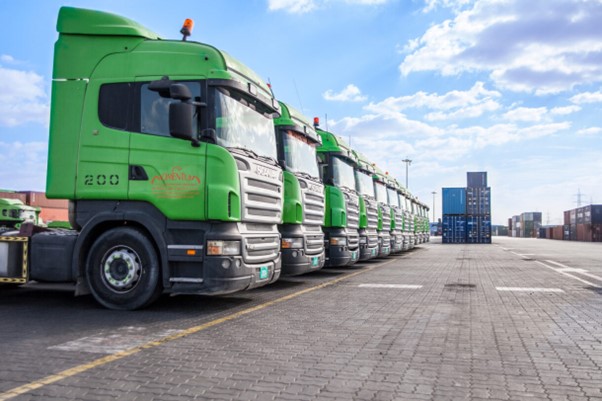The logistics industry needs to step up its sustainability game as it accounts for close to 24% of the global carbon emissions. Freight transportation alone makes up almost 8% of global greenhouse gas emissions. According to a report by MIT Climate Portal, if the logistics industry does not take significant steps towards sustainability, it will become the biggest carbon polluter by 2050.

So, what steps can Logistics Service Providers (LSPs) take to reduce their carbon footprint?
Better Route Planning: Artificial Intelligence (AI)-enabled Transport Management Systems (TMS) have built-in route optimisation capabilities that can help LSPs plan better routes, reducing delivery distances and fuel consumption while ensuring timely deliveries.
Adopting Alternative Fuels: LSPs can add electric vehicles in their fleet and reduce emissions and costs. According to a report by the International Council on Clean Transportation, electric vehicles can cut emissions by nearly 63% over their lifetime compared to diesel vehicles.
Enhancing Vehicle Efficiency: Aerodynamically efficient designs for delivery vehicles contribute to better fuel-efficiency. A study by The Centre for Sustainable Road Freight suggests that a 14% reduction in aerodynamic drag can result in approximately 7% reduction in fuel consumption. Regular maintenance of vehicles also ensures they operate at optimal efficiency.
Implementing Smart Technologies: By embracing technology and embedding telematics and IoT into their operations, LSPs can introduce more visibility in their supply chains. IoT helps in collecting data that can be used to further optimise routes, improve fuel-efficiency and cut down carbon emissions.Effective tracking of delivery vehicles can reduce inefficiencies and wastage.
How Momentum Logistics is Championing Sustainability in the Supply Chain and Logistics Industry
Fleet Modernisation: We use sustainable, and fuel-efficient Scania trucks and our young delivery fleet is Euro emission standards complaint.
Telematics and Fleet Management: Our AI-enabled Transport Management System (TMS) with live tracking capabilities and embedded telematics for real-time data and driver analytics, enables efficient route optimisation and reduced emissions.
Cargo Handling Efficiency: Our fleet is designed to handle both boggy and coupled transportation, cutting down emissions per TEU in compliance with local weight regulations.
Maintenance and Uptime: Our future-proof fleet is maintained in-house in accordance with manufacturer specifications, ensuring optimal performance and minimal downtime.
Sustainability Certifications: We have achieved a high Safety & Quality Assessment for Sustainability (SQAS) assessment score of 95%, demonstrating our commitment to sustainable practices and processes.
Conclusion
If LSPs want to make their operations more sustainable, they must pivot towards embracing modern technologies. Using AI-powered transport management systems and electric vehicles, they can significantly cut down their carbon footprint. As the logistics industry moves towards a greener future, technology-driven sustainability is no longer an option but a necessity.
